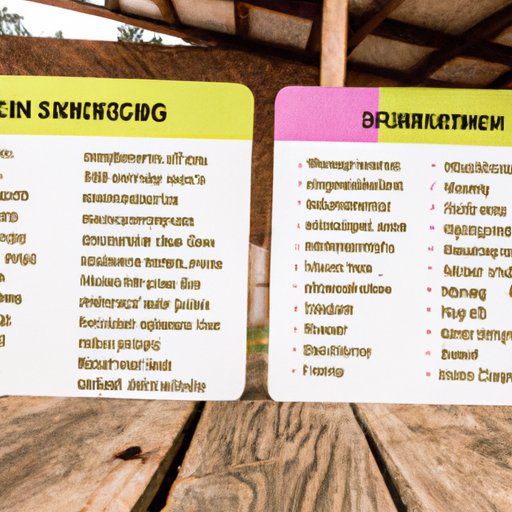Introduction
Shingles, also known as herpes zoster, is an infection caused by the varicella-zoster virus, which is the same virus that causes chickenpox. After a person has had chickenpox, the virus remains dormant in their body and can be reactivated later in life, causing shingles. The condition is characterized by a painful rash with blisters that usually appears on one side of the body or face. While anyone can get shingles, it is most common in older adults.
Exploring the Risk Factors for Shingles and Who Is Most Likely to Get It
There are several risk factors associated with shingles, including age, weak immune system, and stress. Let’s explore each factor in more detail.
Age
Age is one of the biggest risk factors for shingles. According to the Centers for Disease Control and Prevention (CDC), those aged 50 and older are at a higher risk for developing shingles. This is because the immune system tends to weaken with age, making it harder for the body to fight off the virus.
Weak Immune System
Having a weakened immune system due to certain medical conditions, such as HIV/AIDS or cancer, can increase your risk for developing shingles. People taking medications that suppress the immune system, such as steroids or chemotherapy drugs, are also at a higher risk.
Stress
Stress can weaken the immune system, making it easier for the virus to reactivate and cause shingles. It is important to manage stress levels by getting enough rest, eating a balanced diet, exercising regularly, and avoiding unhealthy habits like smoking and excessive alcohol consumption.
Other Risk Factors
Other risk factors include having had chickenpox before age 1, having a history of shingles, and being exposed to the varicella-zoster virus. Additionally, women who are pregnant or have recently given birth may be at a higher risk of developing shingles.
What Are the Signs and Symptoms of Shingles?
The most common symptom of shingles is a painful rash that appears on one side of the body or face. Other symptoms may include:
- Painful skin rash
- Blisters
- Fever
- Headache
- Fatigue
These symptoms typically begin a few days before the rash appears and can last for several weeks after the rash has healed.
How Can You Prevent Getting Shingles?
The best way to prevent shingles is to get vaccinated. The CDC recommends that people aged 60 and older get the shingles vaccine. Additionally, maintaining a healthy immune system by eating a balanced diet, getting regular exercise, and managing stress levels can help prevent shingles. Avoiding exposure to the varicella-zoster virus can also reduce your risk of developing shingles.

Understanding the Link Between Age and Shingles
As mentioned earlier, age is one of the biggest risk factors for shingles. According to research published in the journal Clinical Interventions in Aging, “the incidence of herpes zoster increases exponentially with age; the highest incidence is observed in individuals aged 80 years and above.” This makes older adults much more likely to develop shingles than younger age groups.
What Are the Treatment Options for Shingles?
Treatment for shingles typically involves antiviral medications, pain relievers, and corticosteroids. Antiviral medications can help reduce the severity and duration of the condition, while pain relievers can help ease the discomfort associated with shingles. Corticosteroids may also be prescribed to reduce inflammation and swelling.
When Should You See a Doctor About Shingles?
It is important to see a doctor as soon as possible if you think you may have shingles. Early diagnosis and treatment can help reduce the severity and duration of the condition. It is also important to seek medical attention if you experience any complications, such as vision problems or hearing loss.
Conclusion
Shingles is a painful and uncomfortable condition that can affect anyone, but older adults are particularly at risk. Knowing the risk factors, signs, and treatments can help you take steps towards prevention and early detection. Vaccination and maintaining a healthy immune system are key to reducing your risk of developing shingles. If you think you may have shingles, it is important to see a doctor right away.
(Note: Is this article not meeting your expectations? Do you have knowledge or insights to share? Unlock new opportunities and expand your reach by joining our authors team. Click Registration to join us and share your expertise with our readers.)
